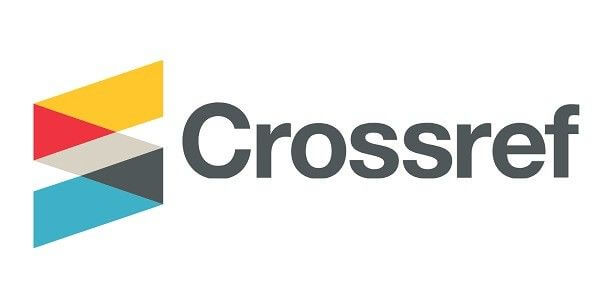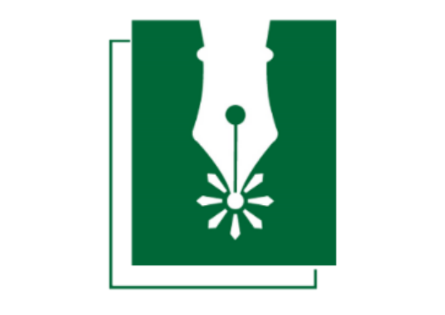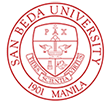Are Green Entrepreneurial Technology and Sustainable Practices Related to Employees’ Performance? A Basis for BPO Techno-Stewardship Action Plan
Keywords:
BPO, Employee Performance, Green Entrepreneurial Technology, SDG 13, SustainabilitAbstract
In recognizing the vital role of BPO industry to the Philippine economy and in ascribing to SDG 13 Climate Action target goal 13.2 in integrating climate measures into policies, strategies, and planning and target goal 13.3, that focuses on the building of knowledge to meet climate change, this research is carried out to answer this specific question: What is the relationship between green entrepreneurial technology & sustainable practices to employee performances in attaining sustainable techno-stewardship? This research embraced a quantitative correlational design in determining the relationship between green entrepreneurial technology & sustainable practices to employee performance. The Structural Validity of the Employee Performance Scale for Filipino Workers EPS-FW by Nieva et al. (2025) was utilized to measure Filipino employee performance. In measuring the ecological conscientiousness of BPO firms in employing green entrepreneurial technology (GET) & sustainable practices (SP), the Program Sustainability Assessment Tool (PSAT) of Washington University, St. Louis, MO (2013) was utilized. Results showed a significant relationship of GET and SP to employee performance, particularly the environmental support dimension to the latent constructs of task, adaptive, and contextual performances. This means that having a supportive internal and external climate strengthens the sustainability capacity of BPO firms. The strategic planning dimension also indicates a significant relationship to task performance, demonstrating strong BPO program directions, goals, and strategies. In designing a sustainable action plan, the study concludes the existence of all PSAT dimensions to support BPO firms’ sustainability competence towards a holistic techno-stewardship plan.
References
Cate, M. (2025). Green tech entrepreneurship: Business models emerging from the smart grid-renewable nexus. https://www.researchgate.net/publication/390746486_Green_Tech_Entrepreneurship_Business_Models_Emerging_from_the_Smart_Grid-Renewable_Nexus
Co, K. I. E. (2022). The correlation of human capital sustainability leadership style and resilience of the managers in airline operations groups of an airline company. https://doi.org/10.58870/berj.v7i1.34 DOI: https://doi.org/10.58870/berj.v7i1.34
Dela Cruz, L., & Angeles, M. (2022). Towards stronger local government and educational institutions in climate change impact mitigation: A policy paper on fiscal sustainability on climate change. https://doi.org/10.58870/berj.v7i1.39 DOI: https://doi.org/10.58870/berj.v7i1.39
Dennis, A. (2024, December 17). What is a BPO call center? (Types, pros, cons). Whatfix. https://whatfix.com/blog/bpo-call-center/
DeNisi, A., & Griffin, R. (2025). HR 6: Human resources (6th ed.). Cengage.
Gallimore, D. (2023, January 26). Outsourcing in the Philippines: Your definitive guide. Outsource Accelerator. https://www.outsourceaccelerator.com/articles/outsourcing-in-the-philippines-your-definitive-guide/
Hair, J., Black, W., Babin, B., & Anderson, R. (2010). Multivariate data analysis (7th ed.). Pearson.
Heizer, J., Render, B., & Munson, C. (2024). Operations management: Sustainability and supply chain management (14th ed.). Pearson.
Khan, S. A., & Bohnsack, R. (2020). Influencing the disruptive potential of sustainable technologies through value proposition design: The case of vehicle-to-grid technology. Journal of Cleaner Production, 120018. https://doi.org/10.1016/j.jclepro.2020.120018 DOI: https://doi.org/10.1016/j.jclepro.2020.120018
Kim, J., & Petalcorin, C. (2022). Entrepreneurship and clean environment: Literature review. Asian Development Bank. https://www.adb.org/sites/default/files/institutional-document/826606/adou2022bn-entrepreneurship-cleaner-environment.pdf
LinkedIn. (2024, May 29). Eco-friendly technologies: Charting the path to sustainable BPO practices in the Philippines. https://www.linkedin.com/pulse/eco-friendly-technologies-charting-path-sustainable-bpo-9tksc
Nieva, A., Quilon, A., Prudente, J., & Cuaresma, E. (2025). The structural validity of the employee performance scale for Filipino workers (EPS-FW). International Journal of Research and Innovation in Social Science, 9(17). https://dx.doi.org/10.47772/IJRISS.2025.917PSY002 DOI: https://doi.org/10.47772/IJRISS.2025.917PSY0025
PEZA. (2020, March 3). Ecozones in-depth: PEZA and Ecozone Development Program—a resounding success story. https://www.peza.gov.ph/press-releases/ecozones-depth-peza-and-ecozone-development-program%E2%80%94-resounding-success-story
Pradhan, R. K., & Jena, L. K. (2017). Employee performance at workplace: Conceptual model and empirical validation. Business Perspectives and Research, 5(1), 69–85. https://doi.org/10.1177/2278533716671630 DOI: https://doi.org/10.1177/2278533716671630
Pearce, D. (2023, August 15). Business process outsourcing (BPO) in the Philippines: An historical timeline. Platinum Outsourcing. https://www.platinumoutsourcing.com.au
Poitras, M. (2024, June 16). What private companies could gain by implementing ESG practices. Moss Adams. https://www.mossadams.com/articles/2024/06/esg-benefits-for-private-companies
Potluri, S., & Phani, B. V. (2020). Incentivizing green entrepreneurship: A proposed policy prescription (A study of entrepreneurial insights from an emerging economy perspective). Journal of Cleaner Production. https://www.sciencedirect.com/science/article/pii/S0959652620308908 DOI: https://doi.org/10.1016/j.jclepro.2020.120843
Rahi, A., Johansson, J., Blomkvist, M., & Hartwig, F. (2023). Corporate sustainability and financial performance: A hybrid literature review. Corporate Social Responsibility and Environmental Management. https://onlinelibrary.wiley.com/doi/epdf/10.1002/csr.2600 DOI: https://doi.org/10.1002/csr.2600
Robbins, S., & Judge, T. (2022). Organizational behavior (Updated 18th ed.). Pearson.
Silva, J., Ten Cate, C., Gaia, S., & Souza, R. (2023). Tool for assessment of the green technology transfer structure in Brazilian public universities. Sustainability, 15(8), 6873. https://doi.org/10.3390/su15086873 DOI: https://doi.org/10.3390/su15086873
Saura, J., Skare, M., & Navarrete, S. (2022). How does technology enable competitive advantage? Reviewing state of the art and outlining future directions. ResearchGate. https://www.researchgate.net/publication/366714579_How_Does_Technology_Enable_Competitive_Advantage_Reviewing_State_of_the_Art_and_Outlining_Future_Directions
SBToolkit. (2024, May 6). How to increase employee engagement on sustainability: Strategies for every organization. https://www.sustainablebusinesstoolkit.com/how-to-increase-employee-engagement-on-sustainability/
Tennakoon, N., Janadari, N., & Wattuhewa, I. (2024). Environmental sustainability practices: A systematic literature review. European Journal of Sustainable Development Research, 8. https://doi.org/10.29333/ejosdr/14604 DOI: https://doi.org/10.29333/ejosdr/14604
Trapp, C., & Kanbach, D. (2021). Green entrepreneurship and business models: Deriving green technology business model archetypes. Journal of Cleaner Production, 126694. https://doi.org/10.1016/j.jclepro.2021.126694 DOI: https://doi.org/10.1016/j.jclepro.2021.126694
USource. (2022, November 23). Philippines BPO employment statistics (2022). https://usource.me/philippines-bpo-employment-statistics-2022/
Wang, Q., & Li, G. (2024). Research on the effect of corporate environmental responsibility on corporate sustainability and the mediator effect of corporate environmental strategy. SAGE Open, 14(3). https://doi.org/10.1177/21582440241266115 DOI: https://doi.org/10.1177/21582440241266115
Washington University, St. Louis MO. (2013). The program sustainability assessment tool. https://sustaintool.org/wp-content/uploads/2016/12/Sustainability-ToolV2_w-scoring_12.11.13.pdf
Published
How to Cite
Issue
Section
Copyright (c) 2025 Josephine Prudente, Eunice Mareth Areola

This work is licensed under a Creative Commons Attribution-NonCommercial-NoDerivatives 4.0 International License.











